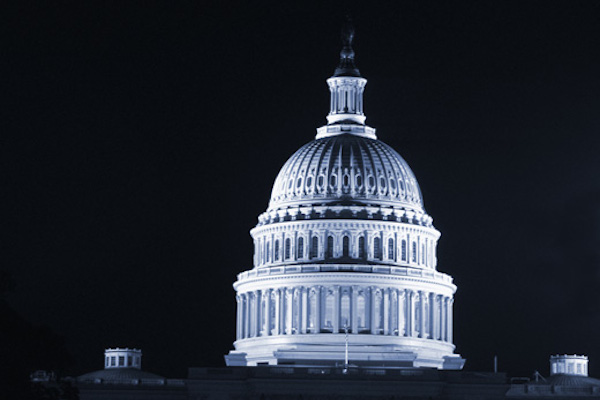A 500-page summary of the U.S. Senate Intelligence Committee’s secret 6,300 page report on torture by the Central Intelligence Agency during the “War on Terror,” the whole of which the CIA has been trying to suppress for quite some time, will be released tomorrow (Reuters):
The 500-plus page report which the Intelligence Committee has prepared for release — a summary of a much more detailed, 6,000-page narrative which will remain secret – includes a 200-page narrative of the interrogation program’s history and 20 case studies of the interrogations of specific detainees.
Graphic details about sexual threats and other harsh interrogation techniques the CIA meted out to captured militants will be detailed by a Senate Intelligence Committee report on the spy agency’s anti-terror tactics, sources familiar with the document said.
[…]
Some interrogation tactics meant to force detainees to divulge information on terrorist plots and cells, went beyond the harsh techniques authorized by White House, CIA and Justice Department lawyers working for President George W. Bush’s Justice Department, according to the sources familiar with the report.
[…]
Intelligence committee Democrats are expected to post the report on the panel’s website on Tuesday, along with lengthy critiques of it by committee Republicans and the CIA.
The report, which took years to produce, charts the history of the CIA’s “Rendition, Detention and Interrogation” program, which Bush authorized after the Sept. 11, 2001, attacks. Bush ended many aspects of the program before leaving office, and Obama swiftly banned so-called “enhanced interrogation techniques,” which critics say are torture, after his 2009 inauguration.
The committee’s bottom-line conclusion is that harsh interrogations did not produce a single critical intelligence nugget that could not have been obtained by non-coercive means.
Ahead of this publication, which is the type of disclosure that my co-founder Nate and I have been calling for since the first year of our first blog (Starboard Broadside), I have spent the evening moving to this site some of the best posts we had written on this subject in 2009 and 2010 when the highly disturbing so-called “torture debates” (whether the acts were torture, whether they should be disclosed, and even whether they be brought back) were raging in Washington D.C. and in the blogosphere.
Almost six years ago, the newly inaugurated Obama Administration was adamantly opposed to publicly admitting such egregious moral failings and national stains (committed by the prior administration), but they seem to have made peace with it finally. Even so, the Reuters account makes it sound like a parting shot against the report:
Preparing for a worldwide outcry, and possibly even violence, from the publication of such graphic details, the White House and U.S. intelligence officials said on Monday they had taken steps to shore up security of U.S. facilities worldwide.
“There are some indications that … the release of the report could lead to greater risk that is posed to U.S. facilities and individuals all around the world,” White House spokesman Josh Earnest said.
[…]
Earnest reiterated that President Barack Obama supports making the document public “so that people around the world and people here at home understand exactly what transpired.”
Meanwhile, U.S. intelligence agencies secretly circulated a bulletin warning of possible violent reactions overseas, a senior intelligence official told Reuters. The Pentagon has also warned field commanders they should take appropriate steps to protect U.S. troops and bases overseas.
Intelligence community officials continue to dispute the report’s findings even until the 11th hour, insisting that torture tactics were vital to saving lives, despite internal CIA memos as early as 2004 stating that there was no evidence that any “enhanced interrogation” methods had stopped even one attack.
As quoted from Reuters above, much of tomorrow’s report is expected to make the case that the little intelligence gained from such methods at all did not include anything that likely could not otherwise have been gained through different (non-torture) interrogation methods in an equally timely manner.





